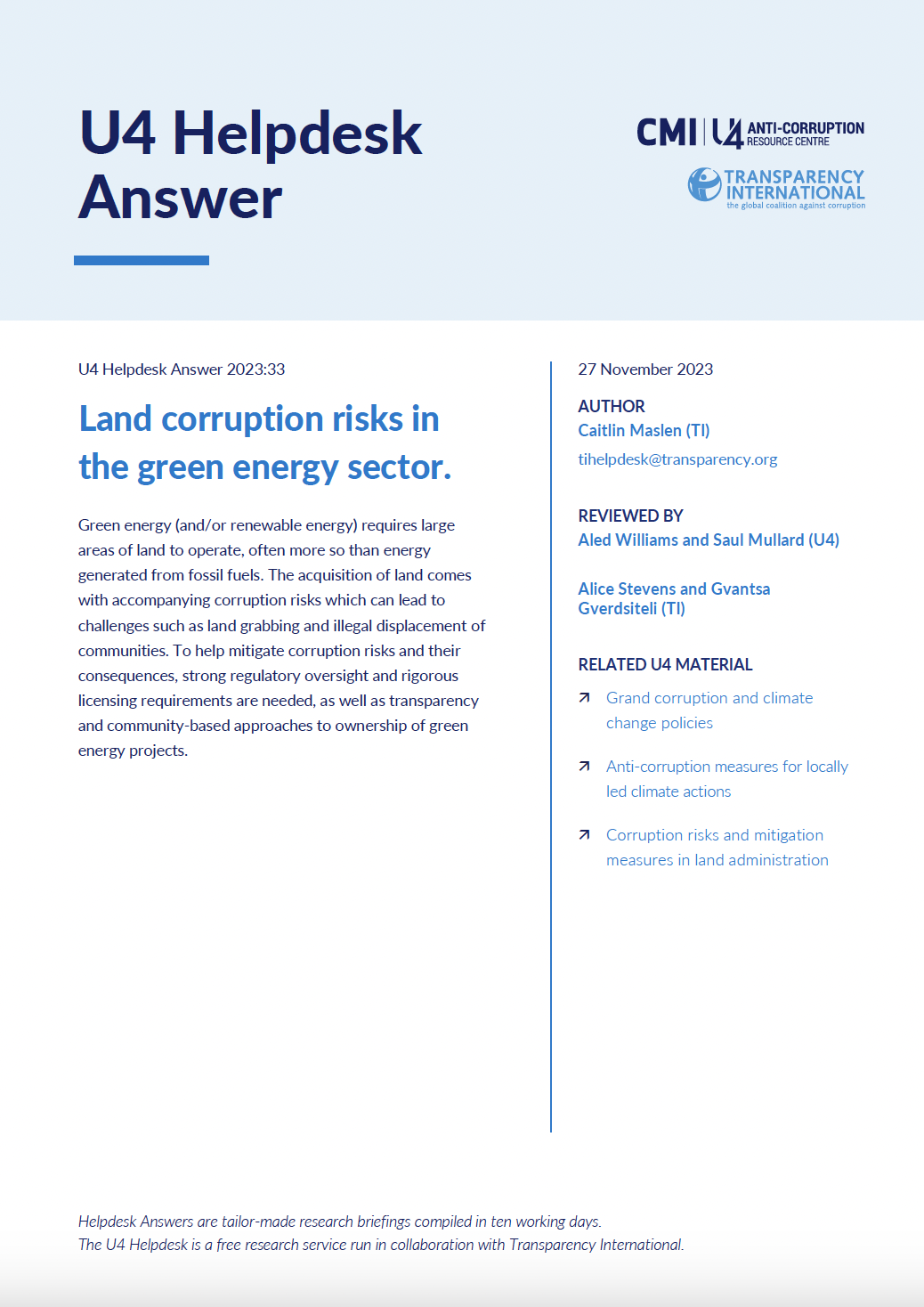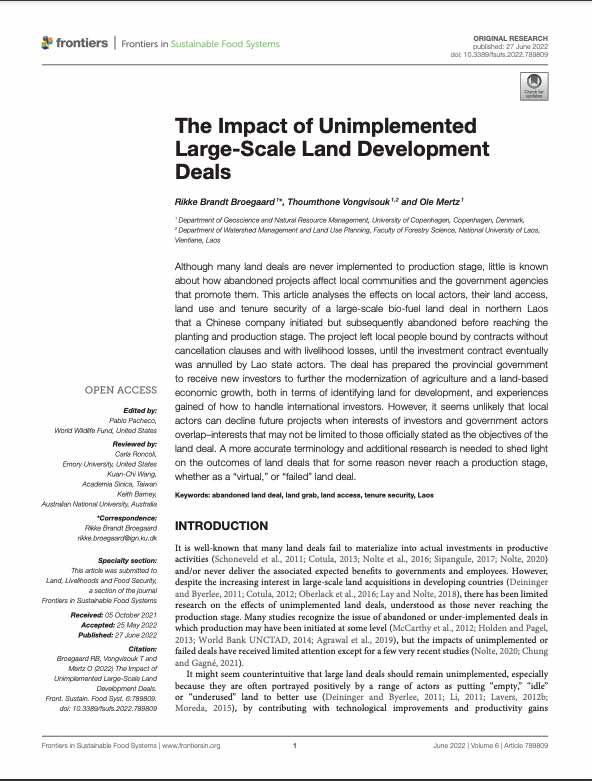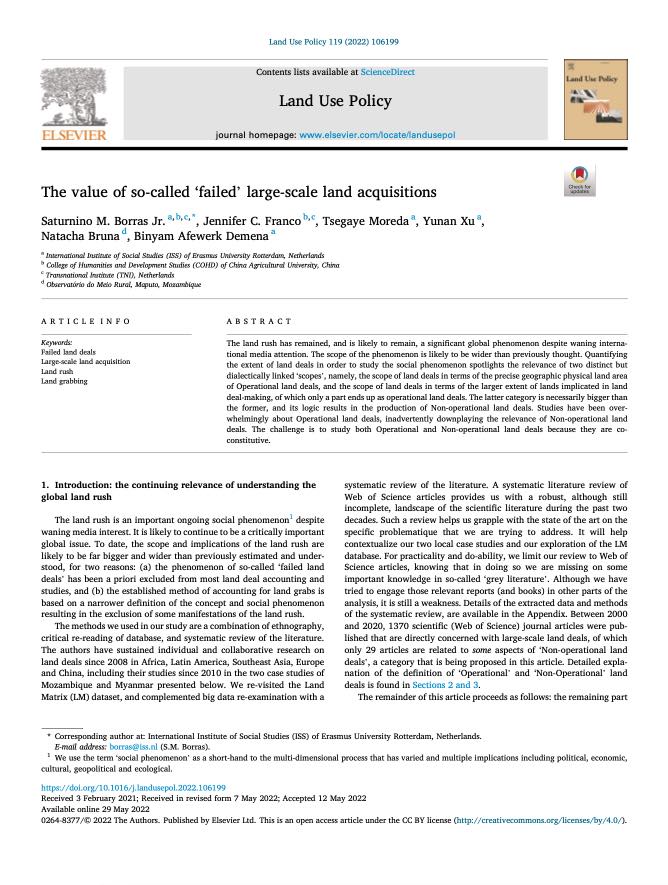Land corruption risks in the green energy sector
Green energy (and/or renewable energy) requires large areas of land to operate, often more so than energy generated from fossil fuels. The acquisition of land comes with accompanying corruption risks which can lead to challenges such as land grabbing and illegal displacement of communities. To help mitigate corruption risks and their consequences, strong regulatory oversight and rigorous licensing requirements are needed, as well as transparency and community-based approaches to ownership of green energy projects.






